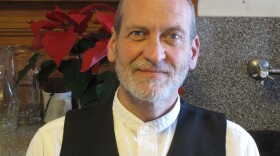
Susan Sharon
Deputy News Director Susan Sharon is a reporter and editor whose on-air career in public radio began as a student at the University of Montana. Early on, she also worked in commercial television doing a variety of jobs. Susan first came to Maine Public Radio as a State House reporter whose reporting focused on politics, labor and the environment. More recently she's been covering corrections, social justice and human interest stories. Her work, which has been recognized by SPJ, SEJ, PRNDI and the National Academy of Television Arts and Sciences, has taken her all around the state — deep into the woods, to remote lakes and ponds, to farms and factories and to the Maine State Prison. Over the past two decades, she's contributed more than 100 stories to NPR.
Got a story idea? E-mail Susan: ssharon@mainepublic.org. You can also follow her on twitter @susansharon1
-
Maine Gov. Paul LePage is letting some low-level offenders out of prison. He says the inmates are needed in the work force.
-
Attendance at a local club for French speakers is at an all-time high. French Canadian natives, once ashamed of their heritage, are connecting with African immigrants over their shared language.
-
The religious sect known as Shakers, responsible for the song "Simple Gifts" and thousands of others, is almost gone — and a non-Shaker is trying to keep the group's musical history alive.
-
After four or five of his patients died from opioid overdoses in one month, Craig Smith, a family doctor in Bridgton, Maine, realized he couldn't wait for someone else to offer addiction treatment.
-
Hardly anyone roasts American chestnuts over an open fire anymore: A blight all but wiped out the trees they grow on. Now the discovery of a soaring survivor could aid efforts to breed a hardier tree.
-
The increasing popularity of the trail is raising concerns at Baxter State Park in Maine, where thru-hikers often complete their arduous journeys with a celebratory climb up Mount Katahdin.
-
A cap on the number of opiate addiction patients that doctors can treat means many who want to take Suboxone can't get access to it. In Maine, the governor has reduced funding for the treatment.
-
Churches are retiring their hymnals and organs, hoping to attract younger crowds, but at West Auburn Congregational in Maine, Charles Marshall has been playing for 70 years with no plans to retire.
-
In Maine, an unusual and historic process is under way to document child welfare practices that once resulted in Indian children being forcibly removed from their homes. Many of the native children were placed with white foster parents. Chiefs from all five of Maine's tribes, along with Gov. Paul LePage, have created a Truth and Reconciliation Commission to help heal the wounds.





